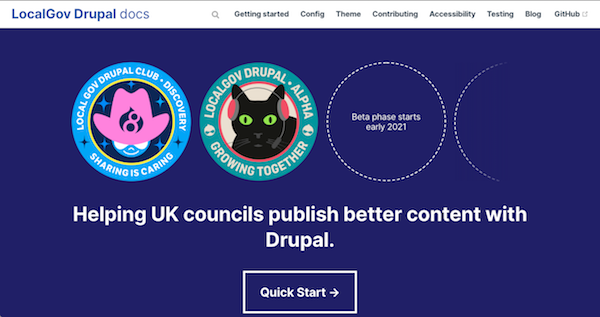The Agile Collective, supported by Annertech, has been successfully appointed as the delivery partner for the project’s next phase of work, which will deliver a new microsites module to the LocalGov Drupal platform.
Listen to the recent Talking Drupal video cast to hear members of the team discussing the project — including what it is and who it’s for.
The project team has also just introduced a new fortnightly drop-in session for content designers from LocalGov Drupal member councils, where they can network, share ideas and contribute to the core distribution.
On Thursday 9 June, Will Callaghan, project lead for the LocalGov Drupal project, delivered a talk outlining his team’s approach and thinking about future steps to other DLUHC funded projects.
During the session, Will provided an overview of:
- the LocalGov Drupal governance model
- how the project team has evolved their community from one to 28 councils
- the team’s plan to create a legal entity
LocalGov Drupal is a prime example of what local government digital collaboration can achieve. Newcastle City Council has just joined the project, bringing the total to 28 UK councils. This number is growing rapidly as more organisations learn about the opportunity that LocalGov Drupal offers.
On Tuesday 5 July, the team will be hosting a free event at the Amazon Headquarters London. Join speakers including Will Callaghan and Kate Hurr (Head of Digital at Cumbria County Council) to hear how using LocalGov Drupal can help councils publish better web content and reduce the cost of management. Find out more and view the agenda, then email [email protected] to book your place.

 UK Ministry of Housing, Communities and Local Government (MHCLG)
UK Ministry of Housing, Communities and Local Government (MHCLG) 